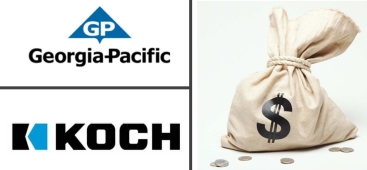
In 2017 industrial giant Georgia Pacific was the first company to create
a subsidiary unit to offload its asbestos litigation liability which then
declared bankruptcy. The tactic is now referred to as the
Texas Two-Step and is being used by more and more corporate giants to limit their losses
in asbestos litigation cases while the parent companies remain highly
profitable.
The controversy here is that Georgia-Pacific paid out approximately $2.5
billion in dividend payments in 2022 to its corporate conglomerate Koch
Industries. The Texas Two-Step is a blatant misuse of bankruptcy proceedings
and allows these companies to halt court proceedings and delay justice
for asbestos cancer plaintiffs while raking in massive profits.
Just last week a three-judge panel in the Philadelphia Federal Appeals
Court ruled that Johnson & Johnson subsidiary LTL Management cannot
use bankruptcy to side step their talcum powder lawsuits citing the company’s
massive assets and lack of any genuine financial distress. A promising
development for plaintiffs which will assuredly be appealed by the Johnson
& Johnson subsidiary.
According to
Reuters, even if Johnson & Johnson settled all their pending court cases it
would cost the company approximately $5.5 billion, which would still not
cause the company financial distress. Johnson & Johnson currently has a
market cap of $421.97 billion making them the world’s 16th most valuable company.
Georgia-Pacific's shareholder equity is currently forecast to be at
$27.8 billion for 2023.
Reuters: Koch gets $2.5 billion in dividends from unit that offloaded asbestos liability